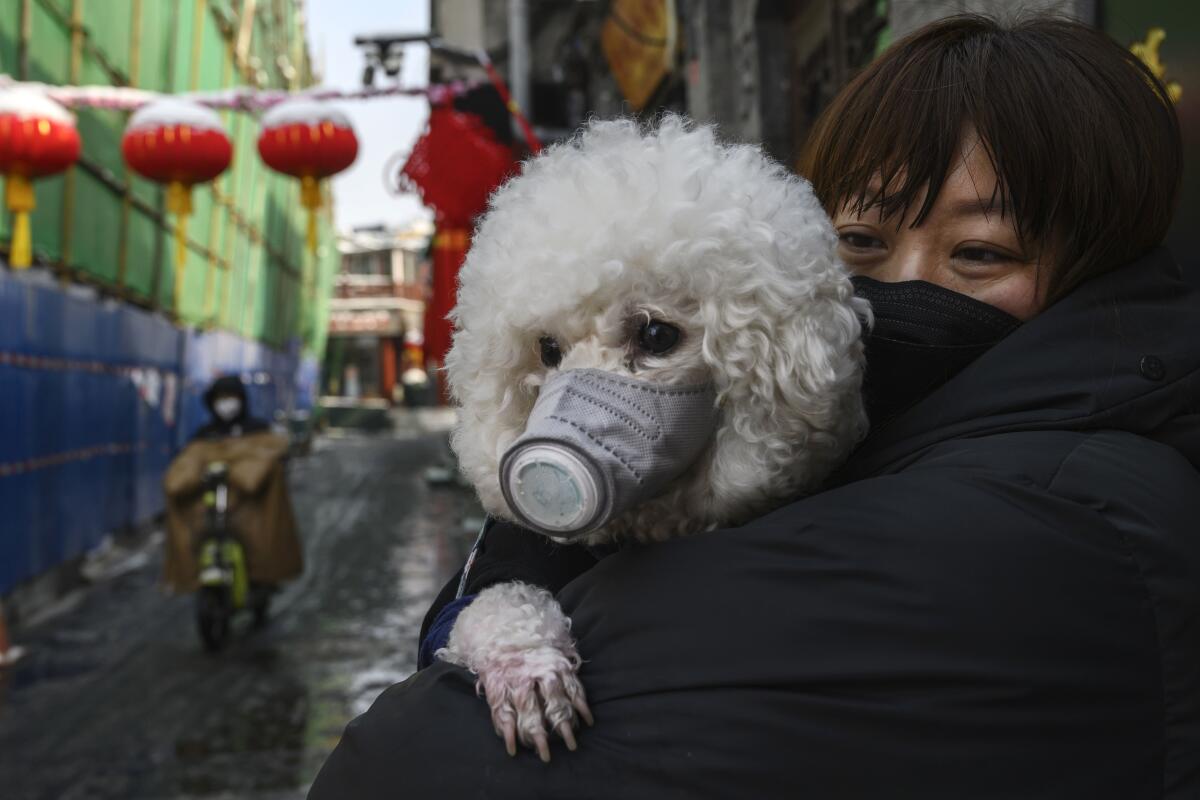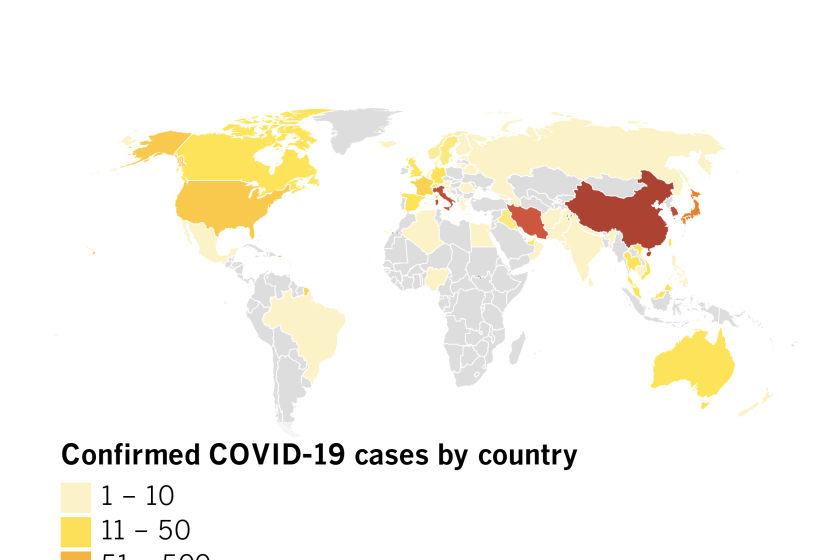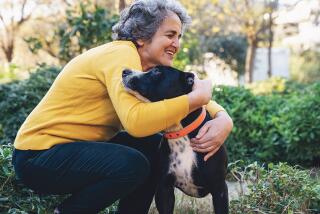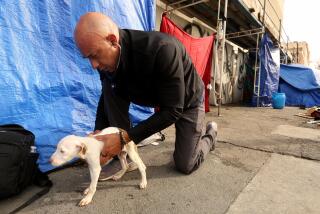Coronavirus and pets: Everything you need to know

- Share via
As coronavirus cases continue to multiply around the globe, it is natural to worry about your own safety, as well as the safety of your family and friends.
But do you also need to worry about your pets?
It’s not a stupid question. Human-to-pet virus transmission has happened before, and it even has a name: reverse zoonosis.
In the midst of the H1N1 influenza pandemic of 2009, humans passed the deadly swine flu virus to household pets, including at least three dogs, five cats and a handful of ferrets, said Christiane V. Löhr, a veterinary pathologist at Oregon State University.
“This was totally unexpected but perhaps not surprising,” she said. ”Infectious agents can be transmitted from animals to humans, so of course it is possible to do the reverse.”
Indeed, there is some preliminary evidence that a transmission of coronavirus from sick human to animal companion may have already occurred.
The Hong Kong government released a report Friday describing a dog that tested “weakly” positive for the coronavirus that causes COVID-19.
Whether that means the dog actually contracted the virus, however, has yet to be determined.
Local researchers collected oral, nasal and rectal samples from the dog for testing, but only the nasal and oral cavity samples came back positive for the virus. In addition, the dog has not shown any symptoms of being sick.
It’s possible that the virus found its way into the dog’s mouth and nose through “environmental contamination” because the animal lives with someone who is infected, according to the report.
The dog is currently being quarantined under veterinary surveillance while more tests are done.
The vast majority of confirmed coronavirus cases — nearly 94% — have occurred in mainland China. But illnesses have been confirmed on all six continents.
Scientists are still trying to pinpoint exactly how the coronavirus made its way into the human population, but they believe it was transmitted through an animal source.
As of now, the closest match to the human coronavirus has been found in bats in China’s Wuhan province.
Historically, influenza viruses including H1N1 are more likely to jump between species than are coronaviruses such as the one causing COVID-19, said Jane Sykes, who studies infectious diseases of dogs and cats at UC Davis.
“Coronaviruses can also move from animals to humans, as appears to have occurred in the recent outbreak, but this is less common than with influenza,” Sykes said.
One reason why influenza viruses are more adept at jumping between species is that they can mutate large parts of their genome at once, rather than just one single point mutation at a time, Löhr said. This allows them to adapt quickly to a new host.
Both dogs and cats have long contended with their own species-specific strains of coronavirus, Sykes said. One known coronavirus causes diarrhea in young puppies, another causes systemic disease in young dogs, and another leads to flu-like symptoms.
Similarly, a coronavirus that effects cats can cause either mild diarrhea or a life-threatening disease called feline infectious peritonitis.
None of these viruses are known to effect humans.
Lohr said the odds are against your dog or cat catching the coronavirus that has you on edge — either from you or somewhere out in the world. But just to be safe, she recommends that pet owners who do come down with COVID-19 take precautions to protect their animals.
“If you isolate yourself from people, you should isolate yourself from your pets as well,” she said. “That is just the sensible approach.”
That means that if you do get sick, resist the urge to cuddle up with your pet, she said.








